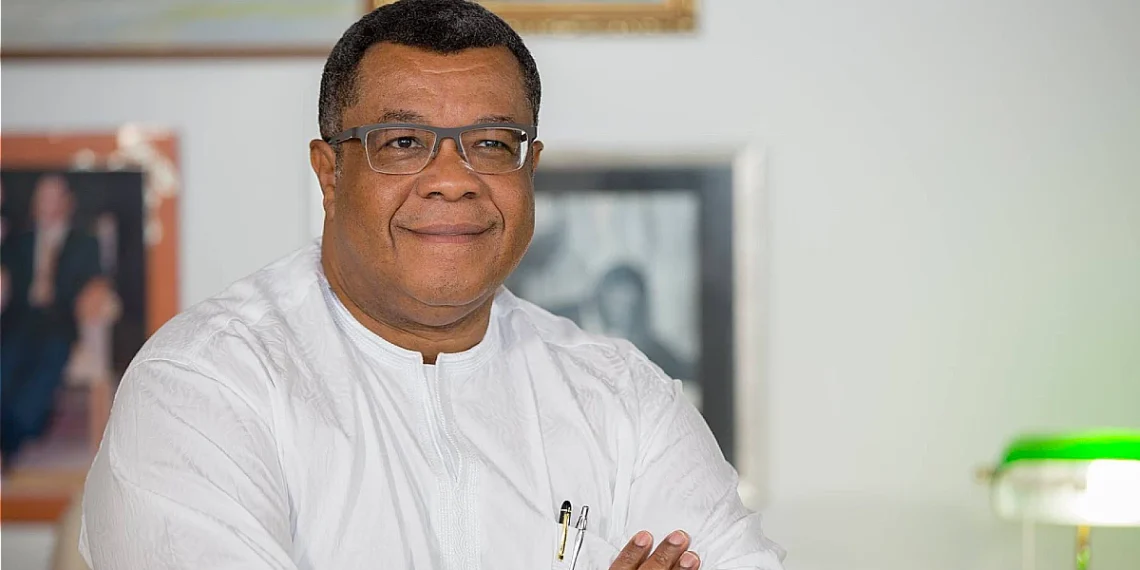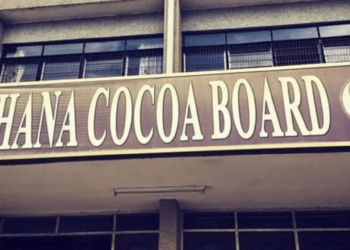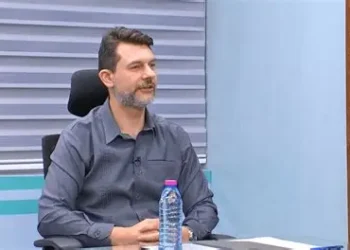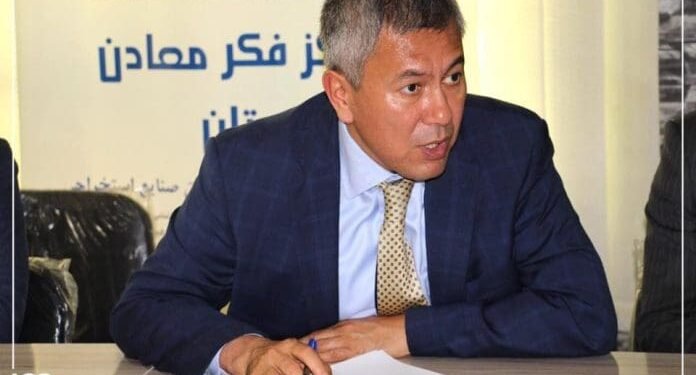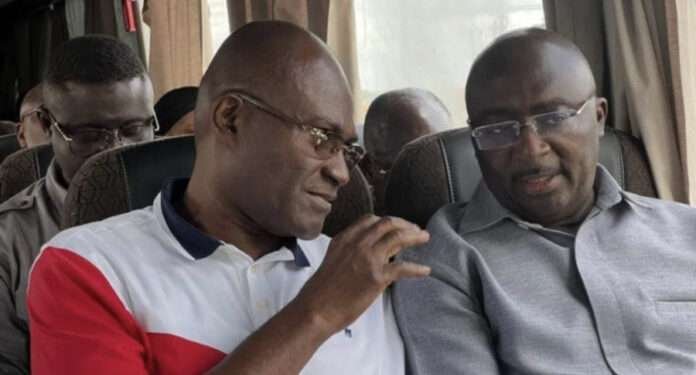On the eve of the much-anticipated presidential launch of Ghana’s 24-Hour Economy and Accelerated Export Development Programme, the Secretariat spearheading the initiative held a major press briefing to articulate its scope, ambitions, and implementation strategy.
Speaking passionately at the event, Augustus Goosie Tanoh, Presidential Advisor on the 24-Hour Economy and Accelerated Export Development, outlined a bold, multi-billion-dollar roadmap aimed at transforming Ghana into a globally competitive, industrialized, and agriculturally self-sufficient nation.
Mr. Tanoh emphasized that the design of the 24-Hour Economy initiative was not done in isolation, but rather through extensive consultations with over 215 individuals and institutions across various sectors.
“We spoke to almost everyone that we should speak to: we’ve spoken to 215 individuals or institutions. And so the work of the state of our economy is really the weapon of men and not just a few from the secretariat.”
Augustus Goosie Tannoh, Presidential Advisor for 24-Hour Economy and Accelerated Export Development
At the heart of the plan is a drive to move Ghana toward a digital, productive, and price-competitive economy. According to Mr Tanoh, this can only happen if Ghana increases production output, focuses on quality, and becomes globally competitive.
He stressed the urgent need to address the country’s heavy dependence on food imports, revealing that Ghana spends nearly $3 billion annually on imported food items—many of which could be produced locally by Ghanaian farmers and manufacturers in the food and beverage sectors.
A $ 4 billion Investment
To bring the ambitious agenda to life, Mr Tanoh announced that the programme would require approximately $4 billion (or GH₵400 billion) in investment over the next few years.
While only about 5% of this amount will come from the government in the form of seed capital and viability gap funding through the Ghana Infrastructure Investment Fund (GIIF), the remainder is expected from private sector investments.
However, unlocking these investments hinges on resolving longstanding structural challenges that have deterred investors in the past.
One of the primary concerns, Goose Tanoh noted, is the unpredictability and incoherence of Ghana’s incentive regimes, asserting that coupled with high operational costs, corruption, and bureaucratic red tape, these factors have driven some businesses out of Ghana to more investor-friendly environments like Côte d’Ivoire. “Our aim is to reverse that,” he declared.
Pillars of a 24-Hour Economy
To that end, the programme includes several foundational pillars. Mr Tanoh noted that the first part of the program is the creation of a coherent, practical, and transparent incentive regime that is performance-based and corruption-free, eliminating avenues for corruption.
Second is the establishment of agroecological industrial parks, specifically designed to provide land free from disputes—a persistent issue for investors.
Goosie Tanoh recounted a telling example in which a major pineapple exporter’s expansion plans were thwarted due to conflicting claims over land ownership, including interference from the military and so-called land guards.
A third critical pillar is the reform of Ghana’s financial environment. “You cannot build a private sector with a 36% interest rate. It’s not going to happen,” Mr Tanoh asserted. He called for access to capital with longer repayment tenures that would allow businesses to expand, localise inputs, and sustain operations.
Another central component of the plan is the provision of essential infrastructure—namely, land, water, energy, and digital connectivity—especially in agriculturally rich but underdeveloped areas in the northern and savannah zones, which are highly vulnerable to erratic rainfall and climate change-induced droughts.
Volta Economic Corridor’s Potential
Particularly exciting for the Secretariat is the growing interest in the Volta Economic Corridor. With a landmass of 8 million hectares—of which 2 million are targeted for agroecological park development—the corridor is being envisioned as a future powerhouse for agro-industrial production.
The plan includes doubling Ghana’s production in key staples such as maize, millet, groundnuts, soybeans, and rice. Currently, Ghana imports one million tons of rice annually, costing $400 million. Similarly, Ghana consumes 371 million chickens each year but produces less than 15% of that total.
Mr. Tanoh was candid about the shortcomings of the country’s current poultry value chain. He noted that much of the imported chicken parts are old, poor-quality stock from international markets that often treat Africa as a dumping ground.
He referenced the Chernobyl nuclear disaster of the 1980s and allegations that contaminated poultry from Eastern Europe made its way to Ghanaian markets during that time, warning that such public health risks must be permanently avoided.
Encouragingly, interest in the programme is building both locally and internationally. Mr. Tanoh disclosed that 150 Chinese companies recently engaged Ghana through the Chief of Staff’s office, and delegations from Korea, Vietnam, Singapore, and India have expressed investment interest.
Notably, an Indian group is looking to manage one of the large agroecological zones, proposing production of soybeans for edible oils, animal feed, cosmetics, and pharmaceuticals.
But Mr Tanoh noted that their enthusiasm was tempered by important questions: How will Ghana ensure that domestic industries are prioritised before exports? Will the new incentive regime be predictable? And does the judicial system offer fair and timely recourse for investors in case of disputes?
These investor questions, Mr Tanoh acknowledged, are valid and central to the success of the initiative. The Secretariat’s response, he said, has been to assure partners that the programme is built with these concerns in mind. “We are designing this with predictability, transparency, and equity at its core,” he said.

Ghana’s Strategic Location
Ghana’s location, he noted, also offers a unique advantage. It is well positioned geographically to export to West Africa, southern Asia via Cape Horn, the Middle East, Europe, and across the Atlantic to the United States.
In many of these markets, Mr Tanoh noted that Ghana’s goods can enter under relatively lower tariff regimes, compared to competitors like China, which has faced tariffs as high as 145% in some instances.
Highlighting Africa’s demographic and land potential, Goose Tanoh pointed out that 64% of the world’s remaining arable land is in Africa, and the continent boasts the youngest population globally—most of whom are under 25 years old.
“If we can provide jobs and income streams, Africa becomes not only a production hub, but a powerful consumption market”.
Augustus Goosie Tannoh, Presidential Advisor for 24-Hour Economy and Accelerated Export Development
The plan also emphasizes the role of research and development. Ghana’s Council for Scientific and Industrial Research (CSIR), Mr Tanoh revealed, has developed numerous innovations that are currently languishing unused. Integrating R&D into national development is, therefore, a priority for the Secretariat.
A Refined Bureaucracy
In conclusion, Mr. Tanoh issued a clarion call for systemic reform within Ghana’s public service. He warned that the bureaucracy must shed its adversarial stance toward citizens and the private sector.
“If you want to build a resilient, efficient, and competitive economy, then your bureaucracy has to change its ways. Our bureaucracy cannot see the private sector or the ordinary citizen that requires service from them promptly as enemies.
“They are there to serve citizens and the private sector to grow this economy so that the bureaucracy itself will be better paid and will also expand and create jobs.”
Augustus Goosie Tannoh, Presidential Advisor for 24-Hour Economy and Accelerated Export Development
He called for a more service-oriented public administration, one that is less focused on self-interest and more aligned with Ghana’s long-term development aspirations.
Ultimately, Mr Tanoh noted that the 24-Hour Economy initiative is not just about round-the-clock operations but a transformational agenda grounded in inclusivity, job creation, value addition, and export growth.
If implemented effectively, it could mark a pivotal turning point for Ghana—repositioning the country as an industrial and agricultural hub in West Africa, with the capacity to meet both domestic demand and global export opportunities.
The official presidential launch is expected to provide further details and commitments from key stakeholders. But for now, Goosie Tanoh’s presentation has offered the clearest picture yet of a grand vision whose time, in the view of many, has come.
READ ALSO: Analyst Criticizes Accra-Driven Policies, Calls for Genuine Decentralization

